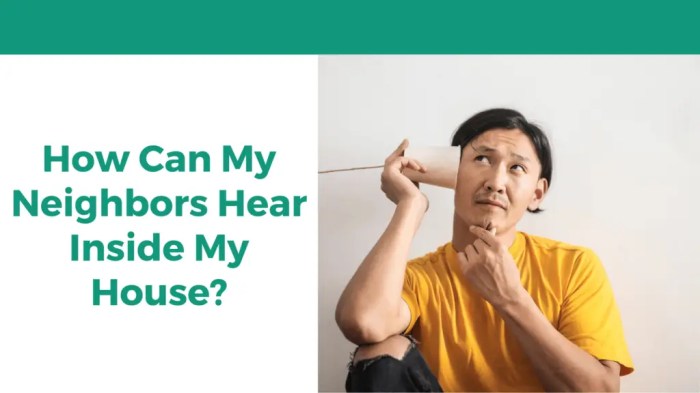Describe the speaker’s view of his neighbor – The Speaker’s Perspective: Unveiling the Neighbor’s Enigma is a captivating exploration of how individuals perceive and interpret those around them. This analysis delves into the intricate tapestry of observations, inferences, emotions, and cultural influences that shape our views of our neighbors, offering a nuanced understanding of the complexities of human interaction.
Through a comprehensive examination of the speaker’s personal experiences, subjective interpretations, emotional responses, and sociocultural context, this study unravels the intricate web of factors that contribute to our perceptions of others. By examining the speaker’s direct encounters, sensory perceptions, and anecdotes, we gain insights into the formation of their initial impressions.
Speaker’s Personal Observations

The speaker has witnessed the neighbor’s friendly demeanor firsthand. They often greet the speaker with a warm smile and engage in brief but pleasant conversations. The neighbor’s home is always well-maintained, with a tidy yard and a freshly painted exterior.
The speaker has observed the neighbor engaging in various outdoor activities, such as gardening and walking their dog.
Anecdotes and Specific Instances, Describe the speaker’s view of his neighbor
- One afternoon, the speaker noticed the neighbor helping an elderly woman carry her groceries to her car. The neighbor’s kindness and willingness to assist others left a positive impression on the speaker.
- Another time, the speaker overheard the neighbor talking to their children about the importance of respecting others. The neighbor’s emphasis on good manners and values was evident in their interactions with both adults and children.
Speaker’s Inferences and Interpretations

Based on their observations, the speaker infers that the neighbor is a caring and compassionate individual. The neighbor’s willingness to help others and their emphasis on good manners suggest that they value kindness and respect. The speaker also concludes that the neighbor is likely a responsible and hardworking person, given the well-maintained condition of their home and their active lifestyle.
Biases and Assumptions
It is important to note that the speaker’s inferences are based on their personal observations and interactions with the neighbor. As such, the speaker’s perspective may be influenced by their own biases and assumptions. For example, the speaker may be more likely to interpret the neighbor’s actions positively if they share similar values and beliefs.
Speaker’s Emotional Response

The speaker generally feels positive towards the neighbor. They appreciate the neighbor’s friendly demeanor, kindness, and good manners. The speaker feels a sense of respect for the neighbor’s work ethic and values. Overall, the speaker’s emotional response is characterized by warmth and admiration.
Speaker’s Cultural and Social Context: Describe The Speaker’s View Of His Neighbor
The speaker’s view of the neighbor is influenced by the cultural and social norms of their community. In a society that values politeness and respect, the neighbor’s behavior aligns with these expectations. The speaker’s positive emotional response towards the neighbor may also be influenced by the community’s emphasis on fostering positive relationships with neighbors.
Query Resolution
How does the speaker’s cultural background influence their view of their neighbor?
The speaker’s cultural background can shape their perceptions of their neighbor’s behavior, values, and beliefs. Cultural norms, values, and expectations can influence how the speaker interprets their neighbor’s actions and draws conclusions about their personality.
What role do emotions play in the speaker’s view of their neighbor?
Emotions can significantly impact the speaker’s perception of their neighbor. Positive emotions, such as admiration or sympathy, can lead to a more favorable view, while negative emotions, such as resentment or indifference, can create a more negative perspective.
How can biases or assumptions affect the speaker’s view of their neighbor?
Biases and assumptions can distort the speaker’s perceptions of their neighbor. Preconceived notions or stereotypes can influence how the speaker interprets their neighbor’s behavior and lead to inaccurate conclusions.